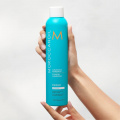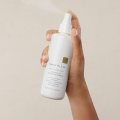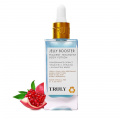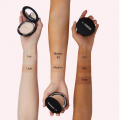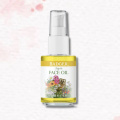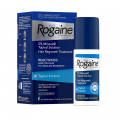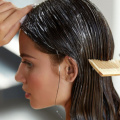An Expert’s Guide on the Unexpected Side Effects of Grapes
Grapes offer several health benefits due to their rich nutrient profile. But, many people may experience unexpected side effects of grapes upon overconsumption.
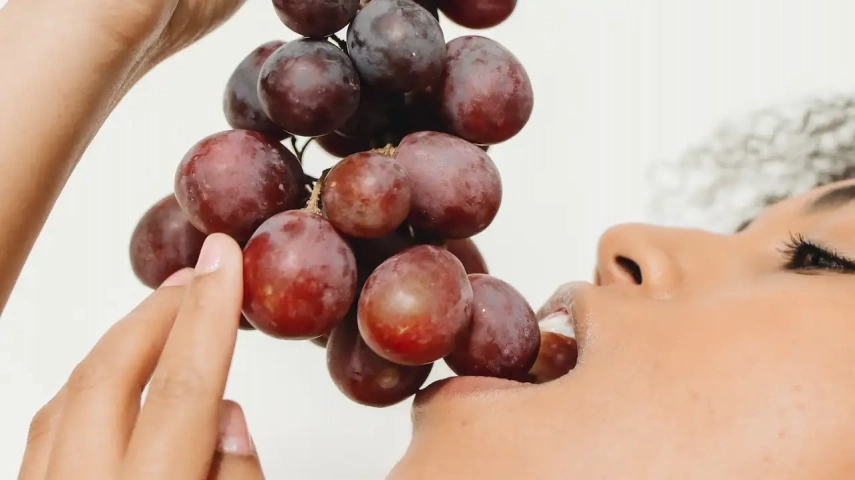
There are very few things which can be as refreshing as enjoying a bunch of grapes during the hot summer. These sweet, juicy, and brilliantly colored fruits are highly nutritious and are revered for their versatile use. It makes a great ingredient for fruit bowls, dressing up sinful desserts, and producing flavourful wines and malt drinks. While eating this juicy and brilliantly colored fruit in moderation offers a multitude of health benefits, going overboard with them may be bad for you. Before you reach out to grab this summer relish, let us warn you about some unexpected side effects of grapes.
Grapes and Their Nutritional Value

The whole fruit, seeds, skin, and leaves of the grape vine hold medicinal value and have been traditionally used as a remedy for several health conditions. Grapes are rich in flavonoids such as lutein and zeaxanthin which are known for their antioxidant effects (1).
Red grapes contain more flavonoids than green or bluish-black varieties. The skin of red grapes comes packed with resveratrol, a phytochemical that is known to protect your body against numerous health conditions. Grapes also contain vitamins A & B, plus they are high in water content (2).
As per the data given by the U.S Department of Agriculture (USDA), one cup of red or green grapes (150 gms) contains (3) -
- Energy-104 Kcal
- Protein-1.09 g
- Fat- 0.24
- Carbohydrate-27.33 g
- Fiber-1.4 g
- Potassium-288 mg
- Calcium-15 milligrams (mg)
- Iron-0.54 mg
- Magnesium-11 mg
- Phosphorus-30 mg
- Sodium-3 mg
- Zinc-0.11 mg
- Vitamin C-4.8 mg
- Vitamin K-22 micrograms (mcg)
- Folate-3 mcg
How Do Grapes Cause Side Effects?
Grapes are widely consumed throughout the globe and are considered safe for most people. However, some people may experience unexpected side effects of grapes due to numerous factors including their age, fitness, and health conditions. Here are some answers to how grapes can cause side effects.
When Taken by Mouth: It is possibly safe when you consume grapes in moderation or the extract of grapes, their skin, leaf, and seeds as medicine. However, binge eating on the fruit may interfere with your digestion and cause diarrhea (4). Also, some people are reported to have allergies to the consumption of the sweet summer treats. A few common side effects linked with the consumption of grapes may include cough, dry mouth, and headache.
When Applied to The Skin: Grapeseed oil makes an active ingredient for many homemade face masks and herbal beauty products. Health and beauty experts suggest not to apply grapeseed oil on your skin for more than 3 weeks (5). Overdoing it may show unexpected side effects of grapes in the form of skin allergies and rashes. Also, there isn’t enough reliable information on if other parts of grapes are safe to use.
Top 9 Unexpected Side Effects of Grapes
Grapes make everyone's favorite due to their rich flavor . The humble fruit is tiny in size and you may end up overconsuming them, which can lead to some unexpected side effects. Here are the top 9 side effects of overconsuming grapes.
1. Diarrhea
As mentioned above, overconsumption of grapes may lead to diarrhea. Grapes contain high amounts of sugar and salicylic acid, both of which makes a potential cause of problems related to digestion. Sugary foods that contain sugar alcohols (organic compounds found in sugar) may cause diarrhea and bloating in your body (6). But, there is insufficient information on if grapes contain sugar alcohol.
Consuming grape juice in excess may cause diarrhea in a few cases as grapes are full of simple sugars (7). Some people may also experience traveler’s diarrhea after overconsuming grapes. It is a type of diarrhea you may get when you travel to a new place where the food and sanitary practices are different from those in your native place. Eating unpeeled fruits usually triggers a traveler’s diarrhea (8). Limiting the intake of grapes, especially when you are away from home is the safe way to stay in good physical health.
2. Unwanted Weight Gain

Weight gain is one of the unexpected side effects of grapes. If you love to snack on a bowl of grapes while sitting on the couch and enjoying your favorite movie, beware! Grapes are tiny in size and super delicious. You may end up overeating grapes unknowingly while watching your favorite TV show or movie; eventually leading to unwanted weight gain.
The tender, juicy fruits are high in sugar, and eating them in excess can make the calories add up quickly. Also, many fitness junkies often browse the internet to find out - are green grapes good for you? The answer- eating a handful of grapes every day can replenish your body with essential nutrients, but binging on the fruit may lead to weight gain.
Besides, you must ensure eating fresh grapes instead of canned ones. Note that canned grapes contain twice as much sugar and may make you gain weight unknowingly.
3. Complications During Pregnancy

Grapes contain resveratrol, a polyphenol also found in red wine. A study mentions that supplementation of resveratrol may cause pancreatic problems in the baby developing in the mother's womb. Though the study doesn’t claim anything negative about grapes in relation to pregnancy, it’s safe to exercise caution (9).
Paying attention to your diet and consulting your doctor to decide on the best foods to eat during pregnancy is the ideal way of keeping you and your baby safe & healthy.
4. Allergies

Although grape allergies are rare, they are one of the unexpected side effects linked with the overconsumption of grapes. The savory fruit contains grape lipid transfer protein, a biochemical that is known to trigger allergies in individuals.
Eating grapes for a long time may lead to anaphylaxis, which can be life-threatening (10). It is a medical condition that occurs by the release of histamines and other chemicals in your body, thus resulting in leaky blood vessels. This eventually ends up in swelling in the lining of the mouth & airways accompanied by dangerously low blood pressure (11).
Another study pinpoints that an 18-year-old woman developed skin rashes, itching, and facial swelling after consuming grapes (12).
Our contributor Mary Sabat, RDN, LD, and Ace Certified Trainer, says, “Grapes can potentially contribute to skin issues or allergic reactions when applied topically due to their natural compounds, including organic acids and tannins. These compounds may cause skin irritation or contact dermatitis in some individuals, especially those with sensitive skin. Additionally, grapes can be acidic, and their juice or extracts might disrupt the skin's pH balance, leading to redness or discomfort for certain people. It's important to perform a patch test before applying grape-based products to the skin and discontinue use if any adverse reactions occur.”
Generally, most grape allergies aren’t life-threatening, except anaphylaxis. If you experience skin rashes or discomfort as unpleasant side effects of grapes, you must schedule a meeting or online consultation with your family doctor immediately.
5. Choking In Kids

Choking in kids is a prevalent yet serious issue. Uncut fruits & vegetables pose a choking threat to children, especially those between 6-12 months of age. The same is the case with grapes. In this age bracket, children learn to chew and swallow the food they eat. Uncut grapes can cause choking in kids. Therefore, you must cut the grapes into small pieces before feeding them to your baby.
The main reason why grapes make a choking hazard for your kid is their shape and size. A grape has dimensions that are perfect to choke a kid's airways. Following the tips given below can help reverse choking in kids as a result of eating grapes (13).
- If you can see the grape, try removing it using your fingers. Do not poke your finger into the kid’s mouth blindly and randomly as you may end up pushing the grape further in, which can worsen the situation.
- If the fruit isn’t visible and your kid is silent or not coughing effectively, rush him to your nearest hospital without further delay.
- If your child is conscious, but struggling to grasp some breath, try giving back blows. As a part of the process, firstly, lay your kid face down along your thighs. Support their head with your hand. Now, give 4-5 sharp back blows with the heel of your hand in the middle of the kid's back (between the shoulder blades). A quick youtube tutorial can be extremely helpful in such cases.
6. Gastric troubles

As mentioned previously, grapes are packed with salicylic acid and some people are intolerant to it. If you too are intolerant to salicylates, consuming grapes in large amounts may lead to an upset stomach, inflammation of the gastrointestinal tract, stomach ache, and bloating (14). Grapes are generally safe in relation to acid reflux. However, you must avoid eating grapes that aren’t fully ripe as they are more acidic than ripe ones.
People suffering from irritable bowel syndrome (IBS) are more likely to experience gastric troubles as unexpected side effects of grapes. The insoluble fiber in the humble fruit may stimulate the gastrointestinal tract and you must not consume grapes on an empty stomach if diagnosed with IBS.
7. Cough

As per anecdotal evidence, excess intake of grapes may cause itchiness or scratchiness at the back of your throat or roof of the buccal cavity. This may happen due to acids present in them . This may further lead to sore throat or cough in a few cases.
8. Headache

It may sound awkward but headache is another unexpected side effect of grapes. A study pinpoints that eating grapes in excess may trigger headaches and migraine in a few cases (15).
9. Dry Mouth
Have you ever experienced dryness and a grainy sensation in your mouth after eating grapes? The sweet, juicy pods contain tannins which tend to interact with the proteins in the saliva. The protein and tannins bind together and precipitate, leading to decreased production of saliva and lubrication in the mouth, eventually leading to dry mouth and increased oral cavity friction (16).
Gorging on the delicious fruit excessively may show up with some unpleasant and unexpected side effects. Besides, overconsumption of grapes may also interact with some medications, and eating grapes may not be beneficial for people receiving treatment for a medical condition.
Speaking of medical conditions, our contributor Mary Sabat, says, “Grapes have the potential to interact negatively with certain medications and medical conditions due to their impact on specific enzymes in the body. Compounds like resveratrol found in grapes can inhibit enzymes responsible for metabolizing drugs, potentially affecting the effectiveness or increasing the side effects of medications. Furthermore, the high natural sugar content in grapes can be problematic for individuals with conditions like diabetes, as it may lead to spikes in blood sugar levels.”
Do Grapes Interact With Any Drugs?
Grapes contain certain biochemicals that can interact with certain medications. The phytochemicals in grapes may have moderate interactions with anticoagulants and the drugs that are changed by the liver. Let’s look at how grapes can interact with medications and drugs.
Moderate interactions- Cytochrome ( P450 1A2 (CYP1A2) substrates) interacts with grapes (17).
Some medications are changed and broken down by the liver. Overconsumption of grapes may interact with these medications and change how quickly these drugs are broken down by the liver. Besides, this could change the action and side effects of these drugs.
Phenacetin interactions with grapes
Drinking grape juice may speed up the breakdown of phenacetin in your body. Taking Phenacetin along with grape juice may reduce the effect of the drug (18).
Also, Grape extract may interact with anticoagulant drugs (blood thinners). Consuming grape extract may increase the risk of bruising and bleeding in people with blood-related disorders or bleeding conditions (19), (20).
Dosing and Usage
Grapes are widely consumed worldwide as whole fruit, extract, jams & jellies, etc. Eating a handful of grapes every day may be beneficial for your overall health. However, overdoing it may show unexpected side effects.
Also, a lot of people ask - are grapes fattening? The answer- grapes are high in natural sugar and calories. While eating them in moderation may fuel your body to stay fit and active, overconsumption may increase your daily calorie count, eventually leading to unwanted weight gain.
Conclusion
Grapes are delicious summer treats with a rich nutritional profile and antioxidant support for the body. However, unexpected side effects of grapes may show up with overconsumption. The common health problems associated with excessive intake of grapes are diarrhea, dry mouth, cough, upset stomach, allergies, and headache. Due to its shape and size, the whole fruit makes a potential choking hazard for children below 5 years of age. They may also interact with certain drugs that are broken down by the liver or may reduce the effect of blood thinners. Though grapes make a healthy addition to your fruit salads or snacking regimes, eat them in moderation to avoid potential side effects.
Contributor: Mary Sabat, RDN, LD, Ace Certified Trainer - Body Designs Ltd.
Sources-
1. Dual Anticoagulant/Antiplatelet Activity of Polyphenolic Grape Seeds Extract
https://www.ncbi.nlm.nih.gov/pmc/articles/PMC6356405/
2. Resveratrol, in its natural combination in whole grape, for health promotion and disease management
https://www.ncbi.nlm.nih.gov/pmc/articles/PMC4553113/
3. Gastrointestinal Disturbances Associated with the Consumption of Sugar Alcohols with Special Consideration of Xylitol: Scientific Review and Instructions for Dentists and Other Health-Care Professionals
4. Grape Seed Oil Compounds: Biological and Chemical Actions for Health
https://www.ncbi.nlm.nih.gov/pmc/articles/PMC4988453/
5. Gastrointestinal Disturbances Associated with the Consumption of Sugar Alcohols with Special Consideration of Xylitol: Scientific Review and Instructions for Dentists and Other Health-Care Professionals
6. Fruit juice malabsorption: not only fructose
https://pubmed.ncbi.nlm.nih.gov/8580619/
7. Prevention and Self-Treatment of Traveler's Diarrhea
https://www.ncbi.nlm.nih.gov/pmc/articles/PMC1539099/
8. Beneficial and cautionary outcomes of resveratrol supplementation in pregnant nonhuman primates
https://www.ncbi.nlm.nih.gov/pmc/articles/PMC4021444/
9. Grape anaphylaxis: a study of 11 adult onset cases
https://pubmed.ncbi.nlm.nih.gov/15813289/
10. Epidemiology, Mechanisms, and Diagnosis of Drug-Induced Anaphylaxis
https://www.ncbi.nlm.nih.gov/pmc/articles/PMC5446992/
11. Simultaneous allergy to vine pollen and grape
https://pubmed.ncbi.nlm.nih.gov/16889288/
12. The choking hazard of grapes: a plea for awareness
https://pubmed.ncbi.nlm.nih.gov/27998886/
13. Bioactive food chemicals and gastrointestinal symptoms: a focus of salicylates
https://onlinelibrary.wiley.com/doi/full/10.1111/jgh.13702#jgh13702-sec-0005-title
14. Watermelon and others plant foods that trigger headache in migraine patients
https://pubmed.ncbi.nlm.nih.gov/33892616/
15. Wine and Grape Tannin Interactions with Salivary Proteins and Their Impact on Astringency: A Review of Current Research
https://www.ncbi.nlm.nih.gov/pmc/articles/PMC6259628/
16. Wine and Grape Tannin Interactions with Salivary Proteins and Their Impact on Astringency: A Review of Current Research
https://www.ncbi.nlm.nih.gov/pmc/articles/PMC6259628/
17. Psychotropic Medications Metabolized by Cytochromes P450 (CYP) 1A2 Enzyme and Relevant Drug Interactions: Review of Articles
https://austinpublishinggroup.com/pharmacology-therapeutics/fulltext/ajpt-v4-id1085.pdf
18. Possible enhancement of the first-pass metabolism of phenacetin by ingestion of grape juice in Chinese subjects
https://www.ncbi.nlm.nih.gov/pmc/articles/PMC2014370/
19. Dual Anticoagulant/Antiplatelet Activity of Polyphenolic Grape Seeds Extract
https://www.ncbi.nlm.nih.gov/pmc/articles/PMC6356405/
20. Grape Seed Extract





 JOIN OUR WHATSAPP CHANNEL
JOIN OUR WHATSAPP CHANNEL




































